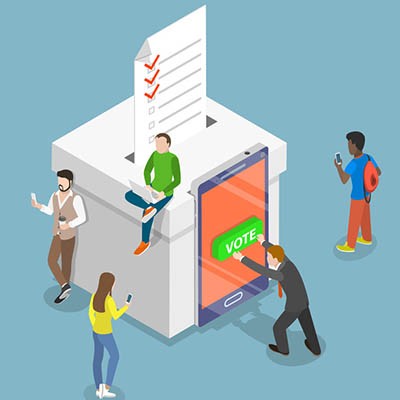Directive Blogs
Is Election Technology Solid or Simply Antiquated
Election Day in the United States is coming up quick on November 6th. It doesn’t matter what your thoughts or opinions on U.S. politics are--the fact remains that millions of Americans will be using the technology available at polling places to cast their ballots, and if this technology isn’t secured properly, the integrity of the voting system will be at risk.
Technology Found at Most Polling Places
Most polling places in America are using technology that is quickly approaching 15 years old. To put that in perspective, let’s think about some technologies and products today that haven’t even reached ten years old yet.
- Google Chrome
- Airbnb
- Spotify
- Kickstarter
- 4G
- Mobile GPS
- The iPad
A co-founder of a nonprofit group called Open Source Election Technology, Greg Miller, has this to say about election technology: ”You have equipment that was introduced in 2005. In that time frame, how many times have you changed your mobile phone? And how many times have we replaced our laptops?” In essence, Miller describes election technology as “...obsolete hardware [and] software that relies on a diet of spare parts.”
The other co-founder of OSET, John Sebes, takes a different approach by showing just how vulnerable the systems are to manipulation. Most polling places have a portable media device, like a CD or USB drive, that must be used to transport the results to another location for the tally. The machines that count the votes are usually outdated in terms of both hardware and software. Sebes initiated a live demonstration for a national news network to show how he could influence the results of an election between two fictional candidates named Thorfer and Varda. Thorfer won with 3,000 votes while Varda received only 100, yet Sebes was able to use malware to switch the tallies around, creating a fraudulent winner. While some computers used for this purpose are secured, others are not so much.
Furthermore, there is some inconsistency in regard to whether or not polling places keep a paper backup of the vote in the event a recount is needed. This includes some of the “battleground” or “swing” states where small numbers of votes can sway the final outcome much more than in other states.
How to Minimize the Issue
The easiest way to resolve this problem is one that is just impossible to pull off. The United States Constitution specifies that each state is responsible for maintaining its own set of electoral procedures, meaning that any attempts at consistency will be made impossible. There are other ways to make progress regarding election system security, even if some of them are more low-tech than anything else.
Temporarily Cease Online Voting
Some states allow online voting for those who are abroad or are unable to make it to the polling place for whatever reason. Some even allow for email ballots. Unfortunately, security for these methods is subpar to say the least, and it should be suspended until it can be secured properly.
Use Physical Backups
Ordinarily, we would suggest that all backups be saved to the cloud. In this case, we’re dealing with something a bit different, as digital assets can be hacked. A physically-generated paper backup of the voting records is less susceptible to being tampered with, and it allows for cross-checking any results.
Invest in Improved Voting Equipment
Since the devices used in the voting process are over a decade old, it’s clear that updating this infrastructure is not a priority. Some have suggested that Congress get involved to expedite the process, creating funding opportunities to improve machines and replace older devices, but this hasn’t happened since 2002.
What are your thoughts on the current state of election technology? Let us know in the comments.



Comments